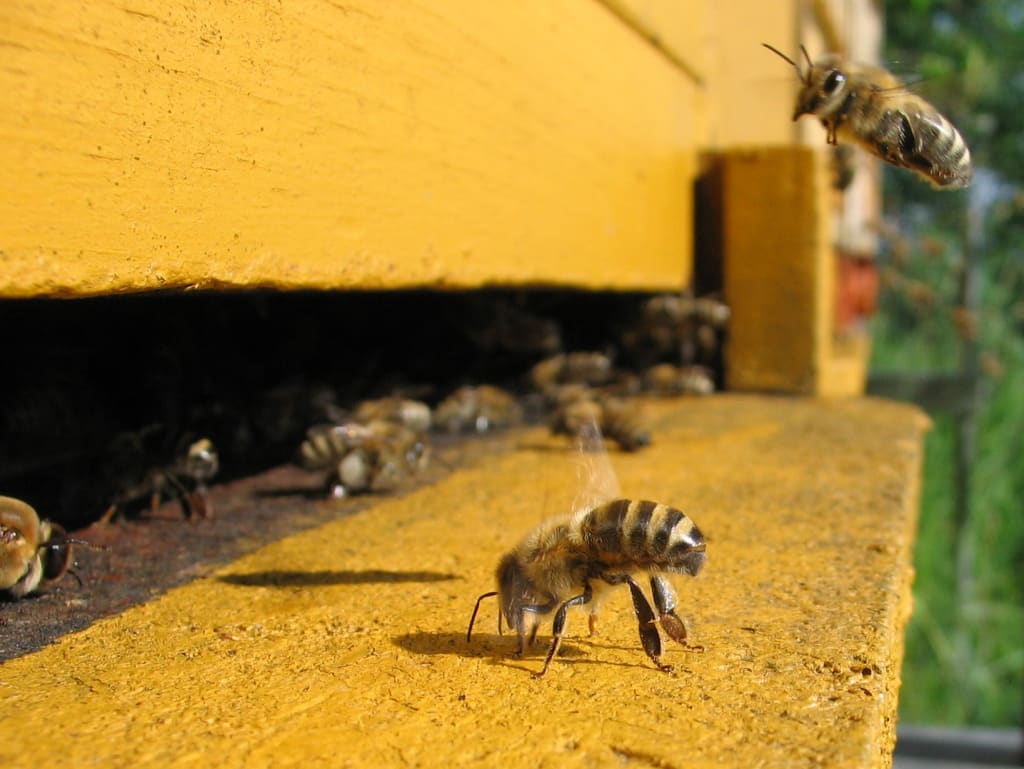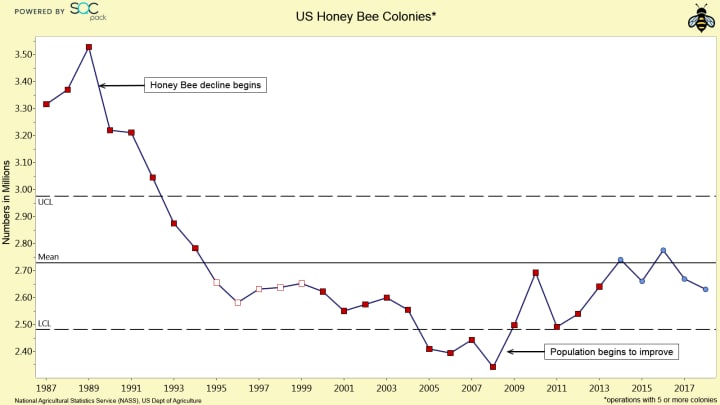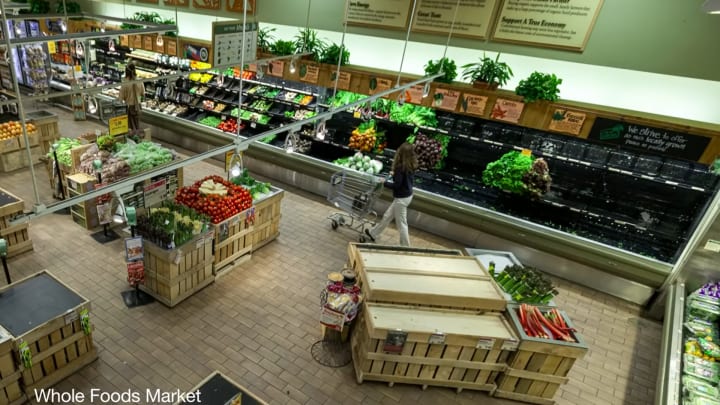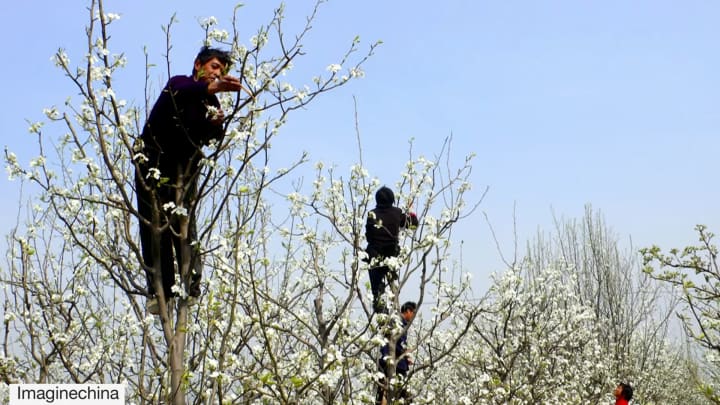The Disappearance of the Honeybees
And about how you can help stop the devastating crash

You've probably heard of honeybees.
Either you have learned about them, inspected a wild pollinating process in action, or slather honey on your toast each morning- it is very clear that they coexist with us humans. They are a key part of society, helping the food industry chug along, and providing mutualistic benefits to the earth.
But currently, their population is decreasing at an alarming rate.
Since 1961, honeybee populations have been monitored carefully. In the United States of America near the year of 1989, the number of colonies was flourishing at 3.51 million- the highest point in history. But since then, everything has skydived.

These mystery disappearances aren't necessarily new. Since the existence of humans, our kind has studied these interesting insects. In the 1600s, European settlers introduced the current domesticated subspecies of Apis Mellifera. Since then, the Homo Sapiens have been collecting honey for centuries.
Since 1989, the 'Honey Bee decline' started striking through the USA. Although there is no verified reason behind this major decline, scientists have suspected a few potential threats. But that doesn't explain why the bees are just disappearing.
The typical crime scene shows the empty shell of what used to be a thriving community. The worker bees have abandoned the colony, leaving the queen and a few stragglers behind. Inside the nest is a batch of unused honey, a few unborn larvae, and their mother.
The worker bees simply disappear into thin air.
This phenomenon is known as Colony collapse disorder (CCD). The bees leave their nest straggling with no help, resulting in the death of many colonies. As mentioned before, there is no verified reason behind this.
Honeybees may seem more important than what comes to mind. First of all, they provide pollination for 1/3 of the world's food production. In other words, without bees, the whole foods section of our local market would look like this:

In a TED Talk, Marla Spivak, a bee activist, stated:
"In parts of the world where there are no bees...people are paid to do the business of pollination by hand."

Without these precious honeybees, a third of our world's food will be gone. And without a third of the food, that will also result in the death of 1/3's of our world's population. And this doesn't only affect humans. Animals get affected too. And most importantly, the bees themselves need to live.
And this leads us to the question: What can I do to save these bees?
1. Planting flowers that bees regularly pollinate
- Utilize some plants for your area! Even if you live in a big city, put up a flowerpot or two. Take advantage of that backyard space.
- Plant your flowers condensed together, which helps the bees pollinate more plants and feed more of their larvae in one run.
- Make sure the place you choose is a sunlit area- with this environment, bees can smell, spot, and pollinate easier. The plants will also a healthy amount of light.
2. Reduce the use of pesticides
- Buy organic fruits and vegetables from the supermarket, they were grown without any pesticides.
- Grow your own produce! Do not use pesticides when growing them either.
- Use non-toxic methods when performing any cleansing outdoor or indoor activity. The toxins and chemicals from your daily activities may seep into the rivers or dirt nearby, virtually infecting the local plants and animals.
3. Inform others
- Share this article with your friends. Bring this up at your school, show it to your classmates. The more people who are aware, the more action that will be held.
- Visit sites that talk about this issue, chat about it online with others.
All in all, the bees are one of the most important species to exist on the surface of the earth. They provide so many unsung benefits to our society. So the next time you spot a flower, some seeds, or an empty patch of grass, try acting up yourself.
After all, we're all in this together.





Comments
There are no comments for this story
Be the first to respond and start the conversation.